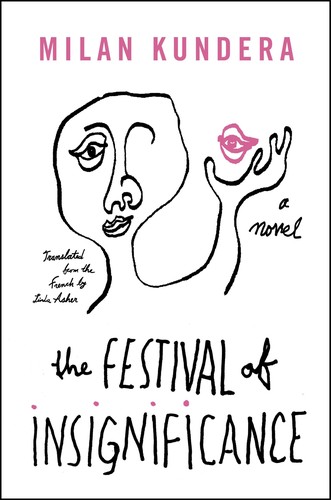kaislea reviewed The Festival of Insignificance by Milan Kundera
Review of 'The Festival of Insignificance' on 'Goodreads'
3 stars
In his latest novels, Kundera has explored a whole new area and style of writing. It's still witty, intellectual, sarcastic and funny, but for some reason I find it also weirdly and annoyingly anarchistic, what comes to good literature. It's as if the writer would try to break boundaries of the well-known 'smart writing' and clichés, and falling very intentionally and, I have to admit, successfully, behind the invisible borders of tastefulness. He does it all with a knowing way, but it still seems a bit like cheating to me. (What I'm solely talking about is the style and means, for example the use of repetition, not the storyline or the characters. There will be spoilers about the ways of writing ahead.)
Even though it's obvious that some of the means Kundera has used have symbolic value, for me they seem a bit off every now and then. For example seeing the narrator reflecting themself above the characters, godlike, might be good for enhancing the marionette-effect of them, but I also think that it's too distracting to have them reflecting their own thoughts to the reader at the same time. It could be also the way it was done in this book: as a result of that I felt the narrator much closer to me than the characters. And that can't be good, if the storyline is still following the characters. Also the excessive use of any enhancing tool is straightforward tacky, and I don't see why explaining it (like Kundera does after using the same exact thoughts in this novel) would make it any better.
Anyway I think mostly my impression of the book got two-star damage from not understanding the symbols in here. What were the angels for? The bottle? Or was it all meaningless, and therefore something I should forget about? It was difficult to understand the meaning of the conversations between the deceased mother and her son, or reflect any of it to Stalin's joke, for example. Maybe I didn't have the correct mindset for this, but maybe it was also hidden too far behind the smarty-pantsy experimental narration for me to reach.
And in the end, even if I didn't find this as charming as Kundera's other production, and the afterall taste was mostly annoyed, I still found myself reading it in one sitting, and thinking about it for days after. I even might read it second time to get a better understanding.. who knows!

